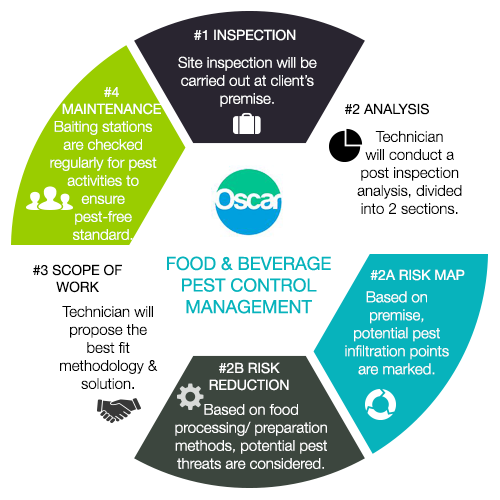The Duty Of Parasite Control In Food Security And Health
The Duty Of Parasite Control In Food Security And Health
Blog Article
Produced By-Halberg Bunn
Are you knowledgeable about the concealed risks that insects position to the safety and security and health of your food? From rats to bugs, these undesirable site visitors can contaminate your active ingredients, surfaces, and storage space locations.
This post discovers the critical function of bug control in maintaining the highest possible criteria of food safety and security and health. Discover effective methods and prevention steps that will certainly help you secure your business, clients, and reputation.
Do not let parasites compromise the quality of your food.
The Influence of Bugs on Food Security and Hygiene
In your kitchen, bugs can have a considerable impact on food security and hygiene. These undesirable guests, such as rodents, insects, and cockroaches, can infect your food, surfaces, and tools with hazardous microorganisms, viruses, and bloodsuckers. They can conveniently access your pantry, cupboards, and even your fridge, leaving droppings, pee, and hair.
Not just can they spoil your food by eating through product packaging, however they can also spread out conditions like Salmonella, E.coli, and Listeria. Visualize preparing a meal for your household, not aware that the active ingredients you're utilizing are already infected.
It's important to take immediate activity to avoid and manage parasites in your kitchen area. Normal cleaning, proper food storage space, and expert insect control procedures are important to ensure food security and keep a sanitary setting in your kitchen area.
Effective Pest Control Methods for the Food Market
Implementing effective insect control approaches is critical for preserving food safety and health in the food sector. By implementing these strategies, you can avoid parasites from polluting the food and make certain that your products are safe for intake.
Find Out More is to frequently check and check your center for indicators of bug task. This includes checking for droppings, nests, or any kind of damage caused by bugs.
It's additionally crucial to seal all entry points to protect against pests from going into the center. Routine cleaning and hygiene are important, as pests are attracted to food residue and spills.
Additionally, appropriate waste monitoring is essential to stop the build-up of food waste that can bring in parasites.
Maintaining Hygiene Criteria Through Insect Prevention Steps
To preserve health standards, you must regularly carry out bug avoidance procedures. By taking proactive actions to prevent parasites from entering your food facility, you can ensure the safety and security and sanitation of your properties. Below are some effective insect prevention steps to think about:
- Seal all splits and holes: Bugs can get in with also the smallest openings. On a regular basis evaluate and seal any gaps in doors, home windows, walls, and floorings to keep bugs out.
- Proper waste monitoring: Deal with food waste without delay and securely in secured containers. This will reduce the tourist attraction of bugs and protect against problems.
- Regular cleansing and sanitizing: Keeping tidiness in your facility is essential. On a regular basis tidy and disinfect all areas, paying special attention to locations where parasites may conceal or breed.
- Property damage out a monitoring system: Regularly examine your premises for signs of bug activity. Mount pest surveillance devices, such as catches or sensing units, to determine and attend to any possible concerns beforehand.
Final thought
So keep in mind, when it pertains to food security and health, parasite control plays a crucial function.
By executing Eco-friendly rodent control and preventive measures, we can make sure the greatest standards of cleanliness and safety in the food sector.
Do not allow parasites jeopardize the quality of our food; allow's stand together and secure our health and wellness and well-being.
